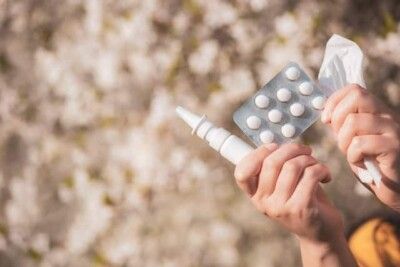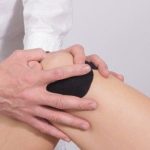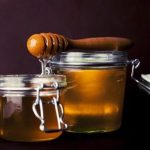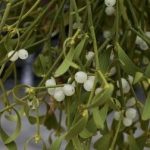
How allergy sufferers can best protect themselves when there is a pollen count
In many cases, spring is a particularly tricky time for allergy sufferers, as this is when most native plants are in bloom. Even without wind there is pollen, which quickly becomes a torment, especially for sensitive people.
Most allergy sufferers, however, inform themselves about the pollen count all year round via pollen forecasts from the Internet.
This way, you know what protective measures to take on the road before you even leave the house.
Which plants to pay special attention to in a pollen forecast?
Who has still an allergy test with the specialist, this should rather catch up with recurring hay fever symptoms briskly.
There are a number of naturally occurring plants that produce pollen to which hypersensitive people are allergic.
Among the grasses, it is mostly the so-called sweet grasses that are responsible for the typical eye and respiratory irritations.
While some hay fever sufferers are allergic to a certain type of tree, other people may also be allergic to meadow herbs.
What you can do against hay fever?
Pollen allergy is usually not curable in the medical sense and can occur suddenly at any age.
How it comes to the outbreak of a certain hypersensitivity, is not completely clear to the medical profession at the moment.
However, increasing environmental and air pollution is suspected to be the cause of the rising number of patients seeking advice from their family doctor with hay fever.
However, the symptoms of a pollen allergy can be treated very well with medication. The various medicines against hay fever take effect immediately, so that a problem-free breathing becomes possible again.
Swelling or itchy redness of the eyes can be treated as specifically as a constantly running nose or persistent cough irritation.
Home remedies and natural alternatives for allergy sufferers
Since many antihistamines, which can also be colloquially referred to simply as anti-allergic drugs, sometimes contain strong active ingredients such as cortisone, some allergy sufferers look for natural alternatives.
Very popular is in particular the allergy immunotherapy, which is carried out directly by the attending physician.
Medical hyposensitization can suppress hay fever-like symptoms for a certain period of time, giving allergy sufferers a new quality of life in their everyday lives.
Home remedies for allergic reactions are usually aimed at treating and suppressing the symptoms.
For example, nasal rinses with a light saline solution can work wonders from spring onwards, even if a high pollen count is forecast outside.

Various herbal teas are also said to help well with hay fever.
The proven natural remedies from grandma’s medicine chest include yarrow, sage or freshly picked nettle leaves for known hypersensitivity to pollen.
Tips for at home with pollen allergy
⦁ Large amounts of mucous membrane-irritating pollen can enter the home through even slightly open windows. Hypersensitive people therefore better close all windows and doors as long as the allergy-causing plants bloom intensively outside. In the early morning hours and late in the evening, as well as after an intense rain shower, ventilation can be performed without hesitation.
⦁ With the hygenic cleaning of the dwelling allergy sufferers may make no cutbacks. House dust or animal hair on the floor or furniture can also be an additional burden during the pollen season. As a result, the hay fever symptoms then occur more strongly or in shorter time intervals. A cleaning robot helps keep the floor really permanently free of tiny contaminants that can otherwise unnecessarily irritate the nose, eyes and respiratory tract.
⦁ The respiratory protection mask, which is now well known on all sides, has also proven itself well in practice in cases of hypersensitivity to pollen. It is important to choose adequate protection that plant pollen cannot penetrate. After wearing the mask outdoors, the mouth-nose mask should be disposed of immediately so that the pollen adhering to the outside does not fall onto clothing and yet get back into the face again.





